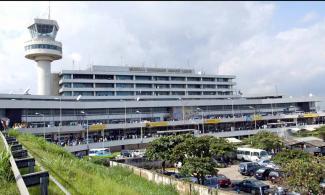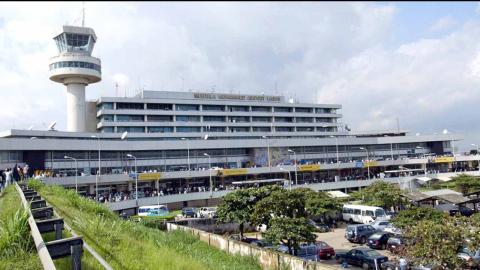
Conference attendees insisted that the only way the Nigerian aviation industry could optimize its inherent potential was for the government to support private investors to establish MRO facilities for all commercial airplanes, rather than taking them abroad for various checks.
Nigeria is set to save $500 million (about N190 billion) annually by building Maintenance, Repair and Overhaul (MRO) facilities in the country.
Participants at a one-day aviation seminar held in Lagos on Monday by Spring Fountain in conjunction with Boeing Aircraft Manufacturing Company said that the absence of the facilities in the country since the demise of the former national carrier, Nigeria Airways, has led to huge capital flight from the country.
Conference attendees insisted that the only way the Nigerian aviation industry could optimize its inherent potential was for the government to support private investors to establish MRO facilities for all commercial airplanes, rather than taking them abroad for various checks.
Mr. Allen Onyema, the Chief Executive Director (CEO) of Air Peace, said that the establishment of MRO facilities would go a long way in propelling the indigenous carriers from moving forward, stressing that the construction of MRO facilities would create at least 10,000 jobs for Nigerian aviation professionals.
According to Mr. Onyema, Air Peace spends about $3.7 million (about N14 million) yearly on aircraft maintenance. The carrier has about 10 aircraft in its fleet.
Mr. Onyema explained that airlines also go through a lot of stress by outsourcing their aircraft maintenance abroad and that the Nigerian economy would benefit from doing the work domestically.
“With the setting up of MRO, supported by Boeing, it goes a long length for the services we offer in this country. It will create about 10,000 jobs in the first year alone. The government can assist this project by giving them land,” Mr. Onyeama said.
“I applied for land to build an MRO facility in almost three years and when they eventually wanted to give it to me, they said I should pay N770m for 15 years for a plot of land and that is their land. Do you support airlines by doing that? This country would save over $500m every year if we had our own MRO facility. In Air Peace alone, I spend over $3.7million on each aircraft.”
Also, the Minister of State for Aviation, Senator Hadi Sirika in his presentation, acknowledged that aviation was a very critical tool for economic development in the world even though it was yet to yield its full potential in Nigeria.
Mr. Sirika, who was represented at the seminar by a Director in the Nigerian Civil Aviation Authority (NCAA), Capt. Sidi Abdullahi, noted that the industry supports 63 million jobs and is responsible for 35 percent of world trade by value.
He explained that global aviation industry is worth more than $5.2 trillion dollars while the airline sub-sector has consistently generated a turnover in excess of $700 billion per annum over the last five years, and reported profit over $30 billion per annum on the average over the last five years.
“In this same industry, the airline and MRO organization are expected to generate in excess of $1.8 trillion over the next 20 years. This turnover excludes upgrade services.
“Other service providers in the aviation and aerospace industry, such as Boeing, Airbus, General Electric, Pratt and Whitney, and Honeywell, among others, will generate far in excess of this in their capacity as aerospace and aircraft original equipment manufacturers,” he said
Mrs. Tokunbo Fagbemi, Executive Director, Spring Fountain Services, said that the agreement the company had with Boeing would lead to the acquisition of about 200 aircraft in the next 20 years by the country’s airlines.
She emphasized that the aviation industry in Africa and especially in Nigeria had been rocky over the years, stressing that it would improve with effective collaboration with private investors.
“Aviation in Africa and especially in Nigeria has not performed well over the years. African aviation is at the bottom of the ladder with just 5 percent of commercial aviation despite being the second largest in terms of global population.
“We ask for a commitment from the government by making air travel easier and cheaper for citizens. We need to grow from our current statistics in Nigeria to about 44 million air travelers annually. If Nigeria meets the 44 million annual travelers, this country would require at least 100 aircraft to move the people around the world,” she said.
